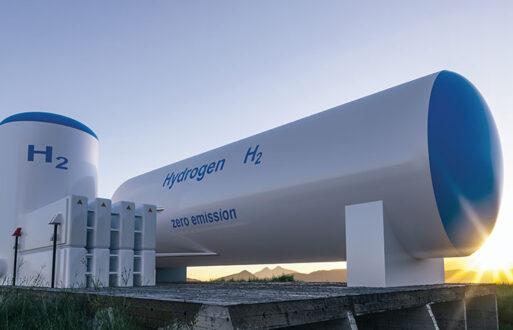Disclaimer: This blog post, which answers “How is a make-whole payment calculated in MISO, and how does it compare to other ISOs like PJM or ERCOT?,” was generated using PCI’s ISO/RTO Documentation AI Chatbot, powered by ChatGPT. While the content is based on curated market documentation, it is intended for informational purposes only and may not reflect the most up-to-date or comprehensive information. We recommend verifying any key details directly with relevant sources before making business decisions.
For the latest answer to this question, generated live, visit our free ISO/RTO Documentation Chatbot.
Make-whole payments are a critical mechanism in energy markets, ensuring that resources providing energy or reserves are fairly compensated when market revenues fall short of their costs. In MISO, these payments are primarily structured around the Revenue Sufficiency Guarantee (RSG) framework. But how does MISO’s approach stack up against other ISOs like PJM and ERCOT? Let’s dive into the details of MISO’s make-whole payment structure, explore how eligibility is determined, and compare it to the mechanisms used in PJM and ERCOT.
In this blog post, we’ll break down MISO’s Revenue Sufficiency Guarantee payments, explain how they’re calculated, and discuss the eligibility criteria. We’ll also compare MISO’s approach to PJM’s Operating Reserve Credits and ERCOT’s uplift payments and scarcity pricing mechanisms, highlighting the key differences and what they mean for market participants.
ISO/RTO Documentation Chatbot
Use our AI to search Business Practice Manuals from ISO/RTO markets at no cost.
How MISO calculates make-whole payments
MISO’s make-whole payments are designed to ensure that resources committed to meet energy and reserve needs are compensated for their total production costs when market revenues fall short. These payments are primarily categorized into Day-Ahead Revenue Sufficiency Guarantee (DA_RSG) and Real-Time Revenue Sufficiency Guarantee (RT_RSG) payments.
Day-Ahead RSG payments: These payments guarantee recovery of start-up, no-load, energy, and operating reserve costs for resources committed in the Day-Ahead Energy and Operating Reserve Market. Eligibility is determined by comparing a resource’s total production costs to its market revenues. If costs exceed revenues, the resource qualifies for a make-whole payment. For example, a generator scheduled in the Day-Ahead Market but facing higher-than-expected costs due to unforeseen operational needs would receive a DA_RSG payment to cover the shortfall.
Real-Time RSG payments: These payments address shortfalls for resources committed in real-time to meet system needs. The Real-Time RSG framework includes two funding mechanisms: the First Pass Distribution and the Second Pass Distribution Uplift. The First Pass primarily funds payments using charges to market participants contributing to the commitment need, while the Second Pass covers residual amounts, such as those arising from transmission constraints or intra-hour demand changes.
How eligibility is determined in MISO
Eligibility for make-whole payments in MISO hinges on whether a resource’s production costs exceed its market revenues during its commitment period. For Day-Ahead RSG payments, this includes start-up, no-load, and energy costs. For Real-Time RSG payments, additional factors like transmission de-rates, topology adjustments, and intra-hour demand changes are considered. Resources must also comply with dispatch instructions and market rules to qualify for these payments.
How MISO compares to PJM & ERCOT
While MISO’s make-whole payments focus on ensuring cost recovery through the RSG framework, PJM and ERCOT take different approaches.
PJM’s Operating Reserve Credits: PJM uses Operating Reserve Credits to compensate resources for costs incurred when they’re dispatched to maintain system reliability or address market inefficiencies. These credits are similar to MISO’s RSG payments but are calculated based on a resource’s offer price and actual output. PJM also incorporates penalties for non-performance, adding a layer of accountability.
ERCOT’s uplift payments and scarcity pricing: ERCOT operates without a capacity market, relying on scarcity pricing mechanisms to incentivize resource availability. When market revenues are insufficient, uplift payments are used to cover shortfalls. However, ERCOT’s approach emphasizes real-time price signals, such as the Operating Reserve Demand Curve (ORDC), to reflect scarcity conditions and drive market behavior.
Key differences and implications
The primary difference between MISO and PJM lies in the funding mechanisms and eligibility criteria. MISO’s RSG payments are funded through specific charge types, such as the First and Second Pass Distributions, while PJM’s Operating Reserve Credits are funded through broader market settlements. ERCOT’s reliance on scarcity pricing, rather than traditional make-whole payments, reflects its unique market design, which prioritizes real-time price signals over cost recovery guarantees.
For market participants, understanding these differences is crucial. In MISO, compliance with dispatch instructions and accurate cost reporting are essential for securing make-whole payments. In PJM, resources must balance cost recovery with performance obligations, while in ERCOT, participants must navigate the risks and rewards of scarcity pricing.
Why understanding make-whole payments matters
Make-whole payments play a vital role in maintaining market reliability and fairness. By ensuring resources are compensated for their costs, these mechanisms support system stability and encourage participation. Whether you’re operating in MISO, PJM, or ERCOT, understanding the nuances of these payments can help you optimize your market strategy and navigate the complexities of energy markets.
In summary, MISO’s Revenue Sufficiency Guarantee payments provide a structured approach to cost recovery, balancing system needs with market fairness. While PJM and ERCOT take different paths, the goal remains the same: ensuring reliable energy delivery while maintaining market efficiency.
For the latest answer to this question, generated live, visit our free ISO/RTO Documentation Chatbot.







